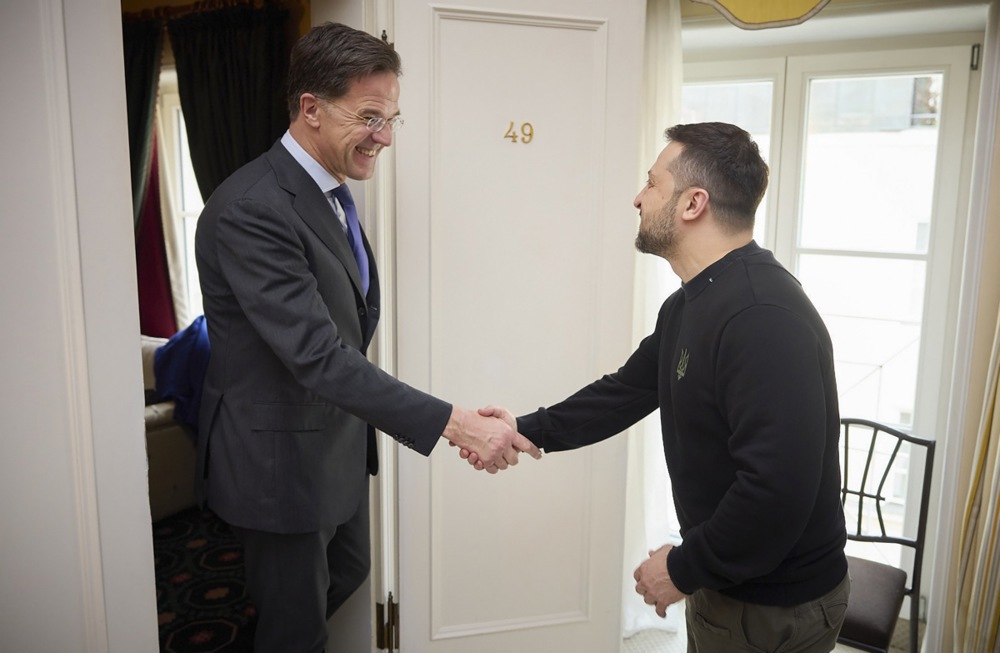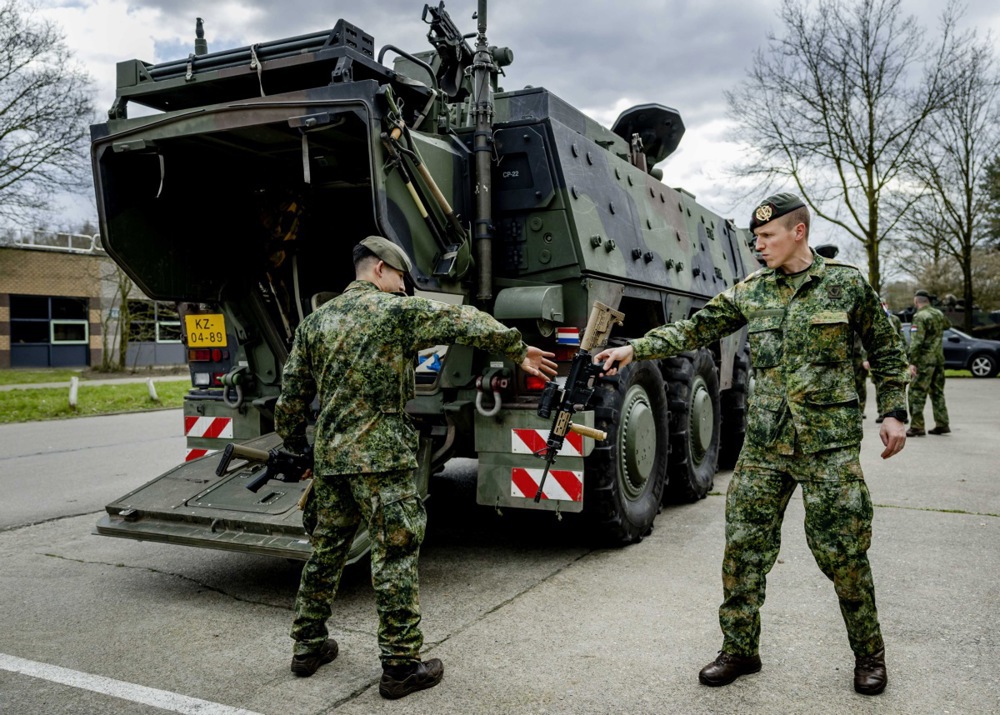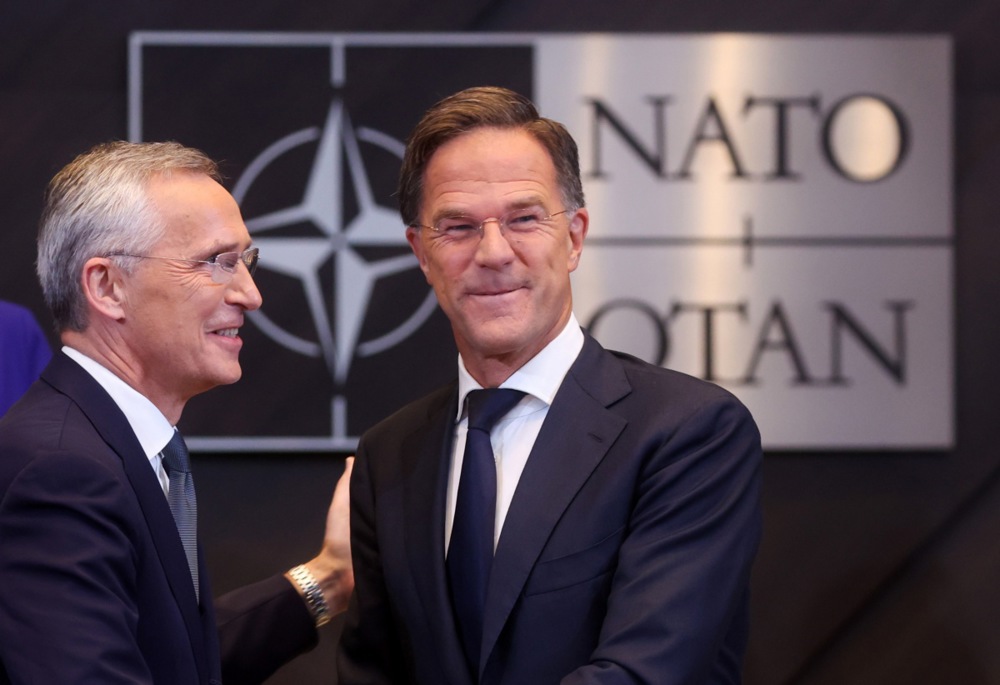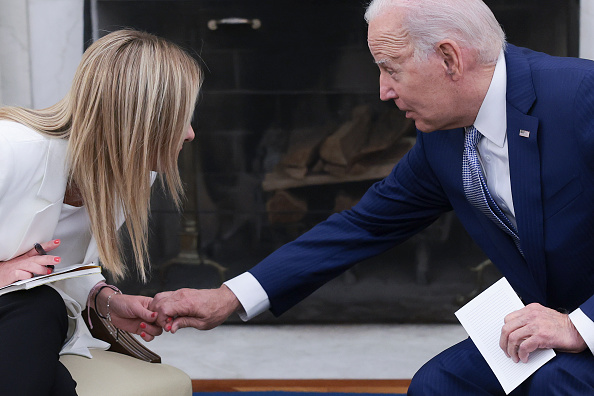Newly installed NATO Secretary-General Mark Rutte has lauded US President-elect Donald Trump for his past efforts in making members of the military alliance invest more in defence.
At the start of his visit to Budapest on November 7 for the European Political Community summit, Rutte said Trump was “right” about the need to increase defence spending.
“We will have to spend more … It will be much more than the 2 per cent. I’m clear about that,” he said.
“You will not get there with the 2 per cent.”
Rutte added he was looking forward to working with Trump and adopted his foreign-policy catchphrase “peace through strength”.
I just congratulated @realDonaldTrump on his election as President of the United States. His leadership will again be key to keeping our Alliance strong. I look forward to working with him again to advance peace through strength through #NATO.
— Mark Rutte (@SecGenNATO) November 6, 2024
The former Dutch prime minister warned of “the increasing alignment of China, Russia, North Korea and Iran” and added that “through NATO, the US has 31 friends”.
“Working together through NATO helps to deter aggression, protect our collective security, and support our economies,” he added.
In the alliance, there is an agreement for each country to invest at least 2 per cent of GDP into defence but many countries have failed to reach that goal for decades, leaning on the US to help when push came to shove.
Trump has always been critical of NATO countries not meeting their end of the deal.
He has seen that as other nations taking advantage of his own and has demanded they carry their weight, threatening to reconsider US involvement in NATO if other members did not increase their financial contributions.
Trump has demanded the alliance “treat the US fairly” and warned members not to “take advantage” of American support.
Such threats during his time in office appear to have worked, and even prior to the Russian invasion of Ukraine, the number of NATO countries meeting the GDP spending target grew from three during his first term as president to 11 by 2022.
European NATO allies and Canada increased their collective investment in defence from 1.47 per cent of their combined GDP in 2014 to 1.85 per cent in 2021.
Poland, the Baltic States and Romania significantly increased their defence expenditure during this period while other countries that did not meet the target, such as France, Italy and Germany, began raising their defence budgets.
Rutte had previously praised Trump for spurring such a charge while he was serving in his previous role as Dutch prime minister.
“When he was president [first time round] he encouraged us to spend 2 per cent. Meanwhile, NATO is above 2 per cent on average,” Rutte said on November 7.
“It’s his success. He is and was right that more money needs to be spent on the European side.”
With the world now appearing less secure than before, a debate has been raging within NATO to have a higher defence spending target. Some want it at 2.5 per cent, others want it to go to 3 per cent.
According to Rutte, who dragged his feet on defence spending while PM of the Netherlands, capacity norms should also be part of the conversation. These determine the amount of military materials and ammunition countries should have in store.
European Commissioner-designate of Defence and Space Andrius Kubilius said in his EC hearing on November 6 that Russia’s superior production capacity in military stocks “should be a warning to all of us”.
He said the European Union needed to spend more and more effectively on its defence, “not because that is a demand from President Trump, but because of Putin”.
At the European Political Community summit, European security is high on the agenda as the war in Ukraine, the escalation of conflict in the Middle East, and the migration crisis continue.
The US election results, with Trump having been seen as an isolationist and more focused on China, have fuelled concern among European elites that the EU will increasingly be left on its own to deal with such problems.
“We can’t delegate security to the Americans,” French President Emmanuel Macron said during a visit to Budapest this week.





